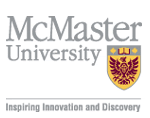Prof C Filipe, Dr Natalie Schmitt, Prof Yingfu Li
No more applications being accepted
Funded PhD Project (Students Worldwide)
About the Project
Are you interested in the interface between conservation and cutting-edge biosensor research to empower more people to be a part of the global conservation movement? This position is for you.
McMaster University in partnership with WildTechDNA (https://wildtechdna.com/) are in the process of developing a sensitive, easy-to-use, real-time, portable and inexpensive paper-based DNA technology to identify wildlife (and plants) from small samples of genetic material. The technology builds on the foundational work of Dr Yingfu Li in bacteria detection (Department of Biochemistry and Biomedical Research). The project has already attracted huge global interest and endorsement from many conservation angles.
http://geographical.co.uk/nature/wildlife/item/3760-dna-sequencing-device-could-rapidly-detect-illegal-wildlife-products?fbclid=IwAR3p8TL6aC_HZrCzj9_VeUgqwizSN5qgzxSOH2M-iJqSxywy6lyOAnWGQO4
https://news.sky.com/story/snow-leopard-dna-helps-develop-pregnancy-test-technique-that-could-quickly-identify-endangered-species-in-wild-using-faeces-11778859
We have recently acquired Canadian government and industry funding to initially develop the technology for the detection of fecal samples from caribou with the University of Calgary.
Further funding will take the technology to a whole new level and develop assays for all the big cats for fecal, skin, hair and bone detection in parallel.
We are looking for a passionate and motivated PhD student to help in the development of the technology.
The PhD student will focus primarily on developing a novel DNA extraction method using a paper-based platform for fecal samples, working at the Department of Chemical Engineering under the supervision of Dr Carlos Filipe (https://www.eng.mcmaster.ca/chemeng/people/faculty/carlos-filipe). This extraction method will have enormous applications for all point-of-care real-time biosensors for human disease detection as well as wildlife detection. The student will directly collaborate with the two post-doctoral fellows at the Department of Biochemistry and Biomedical Research (working on DNA amplification and signal) and our team at the University of Calgary (developing the caribou specific markers). With pending additional funding, the student will also collaborate with the Senckenberg Institute in Germany to developing the extraction method for other sample types such as skin, bone, hair and tissue.
Requirements: Previous lab experience working with nucleic acids and in molecular biology. Ability to design experiments, identifying the appropriate set of controls and ability to problem-solve effectively in the lab. Knowledge in bioinformatics is desirable.
Project Overview
Finding effective, inexpensive ways to detect and monitor wildlife is paramount to national and global conservation efforts, especially in biodiversity-rich but economically poor developing countries, where this aspect is becoming increasingly more urgent. Detecting wildlife from the DNA profile of their remains has become a critical method in conservation that would otherwise be difficult or impossible to obtain through other means. Currently, DNA retrieved from materials (e.g., feces, skin and bone) collected in the field need to be analyzed using traditional methods in the lab or using expensive and complex portable DNA sequencers.
The specific challenges with these traditional laboratory methods that limit the widespread adoption of genetic species detection include:
a) they are time-consuming and require specialized expertise; 2) they are sensitive to the samples’ age and quality; 3) laboratory costs are too high for large-scale studies or for developing countries, precisely the regions that need this information the most.
Such challenges prevent the inclusion of the largest proportion of the international conservation community, the public, and prevent many developing countries (including biodiversity hotspots) from solving conservation problems due to socio-economic reasons.
Our solution is to develop an innovative, ground-breaking, and unique technology - a portable, effective, affordable, paper-based DNA testing device for the real-time detection and monitoring of elusive (or indeed all) wildlife.
Our paper-based hand-held device will operate much like a pregnancy test, performing three functions in one:
✓ capturing the DNA from a variety of genetic sources (e.g feces, bone, skin etc.),
✓ producing readable copies of the DNA, and
✓ detecting the target species DNA through a simple colour change.
This technology will be truly revolutionary, in its ability to detect wildlife quickly, easily and cheaply. The applications and benefits to address the critical issues currently threatening the world’s biodiversity include:
1) Illegal Wildlife Trade Monitoring.
2) Endangered Species Detection.
3) Community Based Conservation.
With easy, follow-up steps, the paper-based technology could also be applied to:
4) Wildlife Disease Detection.

 Continue with Facebook
Continue with Facebook

